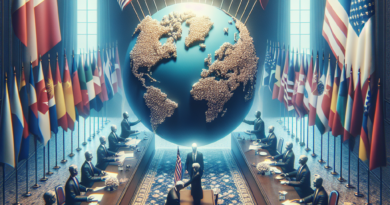Taiwan is approaching presidential elections: who are the candidates (and what can change in the relationship with China)
On January 13, 2024, in just over two months, Taiwan's approximately 24 million inhabitants will be asked to choose their next president.
The outcome of the increasingly imminent Taiwanese presidential elections will influence relations between the island, self-managed but considered by the Beijing government an integral part of its territory – as well as a "rebel province" to be reannexed to the motherland by hook or by crook – and China, understood as the People's Republic of China.
Yes, because in the event that the polls confirm the Democratic Progressive Party (PPD) in power, Taipei will continue along the line traced by the current president Tsai Ing-wen: maximum autonomy and independence from China.
The problem is that, on the other side of the Taiwan Strait, Chinese President Xi Jinping has repeatedly hinted that he wants to annex Taiwan to the mainland at any cost.
Including that of fighting Taiwanese independence activists with weapons.
Such a scenario would coincide with a regional conflict with global repercussions, given that Taiwan's main partners are the United States.
Faced with such a scenario, Washington would call upon other allies: Asian ones, such as Japan and South Korea, but also Western ones.
In short, a total disaster that everyone would like to avoid by focusing on diplomacy.
This is why the upcoming Taiwanese presidential election is so crucial.
The candidates and parties running in Taiwan Having defined what is at stake in the Taiwanese presidential elections – the (geo)political future of the island, relations with China, the risk of conflict – it is necessary to analyze the running parties and their candidates .
Among the main contenders we find William Lai of the aforementioned PDD, liberal and skeptical towards China, Hou Yu-ih of the Kuomintang (KMT), a conservative and nationalist, independent and anti-communist party, but at the same time inclined to start a fruitful dialogue with the Party Chinese Communist, and Ko Wen-je of the centrist Taiwan People's Party (TPP).
Space, then, for the independent outsider Terry Gou, the billionaire owner of Foxconn, the company that produces around 70% of the smartphones shipped by Apple all over the planet.
Going into detail, last April the PDD elected Vice President William Lai Ching-te as its presidential candidate.
It will be his turn to run against Hou Yu-ih, the new mayor of Taipei city.
The two favored presidential candidates have different strategies to preserve peace in the region and with China.
While Lai has a position aligned with the independence wing, Hou follows a conciliatory approach, mirroring the KMT.
The Nationalist Party, in fact, opposes the idea of an independent Taiwan and accepts the principle according to which there is only one China.
It is the same principle trumpeted by Beijing, except that the KMT believes that the "real" China is the Republic of China, i.e.
Taiwan, while the communists in Beijing believe the People's Republic of China (i.e.
the current "China").
Hou is a solution that would not displease Xi, given that the KMT man would propose an agenda based on maintaining Taiwan's de facto independence, but under the de jure designation of China.
read also 3 reasons why a war in Taiwan is still possible The issue of China and the rise of outsiders Beware of the third wheel, the Taiwan People's Party, an alternative to the historic rivalry between DPP and KTM.
The party candidate who could even surpass, or at least undermine, the KMT is Ko Wen-je.
The former DPP militant said in an interview that Taiwan's "status quo" of de facto, but unofficial, independence would be the only realistic option at the moment.
However, both agree on the need to strengthen Taiwan's military self-defense capabilities to discourage China from launching a possible military attack.
Change their modus operandi.
According to Lai, improving military capabilities and strengthening alliances and economic relations with foreign countries are the key to dissuading Beijing from military adventurism.
Ko (but also Hou) is instead aiming for greater exchanges in the economy, education and other fields, as well as the resumption of high-level diplomatic dialogue with China, to ease tensions and maintain peace in the Taiwan Strait.
And Mr.
Foxconn Terry Gou? The tycoon is running as an independent, but his poll numbers are very low.
He accused the DPP of bringing the island to the brink of war with China with hostile and counterproductive policies, and explained that only he, thanks to his extensive business and personal contacts in China and the United States, would be able to maintain the peace.
The moment of truth is ever closer.




